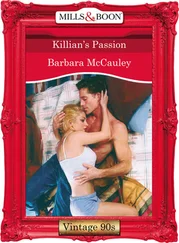Barbara Branden - The Passion of Ayn Rand
Здесь есть возможность читать онлайн «Barbara Branden - The Passion of Ayn Rand» весь текст электронной книги совершенно бесплатно (целиком полную версию без сокращений). В некоторых случаях можно слушать аудио, скачать через торрент в формате fb2 и присутствует краткое содержание. Жанр: Биографии и Мемуары, на английском языке. Описание произведения, (предисловие) а так же отзывы посетителей доступны на портале библиотеки ЛибКат.
- Название:The Passion of Ayn Rand
- Автор:
- Жанр:
- Год:неизвестен
- ISBN:нет данных
- Рейтинг книги:4 / 5. Голосов: 1
-
Избранное:Добавить в избранное
- Отзывы:
-
Ваша оценка:
- 80
- 1
- 2
- 3
- 4
- 5
The Passion of Ayn Rand: краткое содержание, описание и аннотация
Предлагаем к чтению аннотацию, описание, краткое содержание или предисловие (зависит от того, что написал сам автор книги «The Passion of Ayn Rand»). Если вы не нашли необходимую информацию о книге — напишите в комментариях, мы постараемся отыскать её.
The Passion of Ayn Rand — читать онлайн бесплатно полную книгу (весь текст) целиком
Ниже представлен текст книги, разбитый по страницам. Система сохранения места последней прочитанной страницы, позволяет с удобством читать онлайн бесплатно книгу «The Passion of Ayn Rand», без необходимости каждый раз заново искать на чём Вы остановились. Поставьте закладку, и сможете в любой момент перейти на страницу, на которой закончили чтение.
Интервал:
Закладка:
"Les Miserables was the big experience. Everything about it became important to me, holy; everything that reminded me of it was a souvenir of my love. It was my first view of how one should see life, wider than any concretes of the story. I didn't approve of the ideas about the poor and the disinherited, except that Hugo set them up in a way that I could sympathize with; they were the victims of government, of the aristocracy, or established authority. The personal inspiration for me was that I wanted to match the grandeur, the heroic scale, the plot inventiveness, and those eloquent dramatic touches."
In recounting her reaction to Hugo, Alice was defining what was to be her own literary approach: the heroic, larger-than-life scale of men and events; the invention of complex, ingenious plots; the drama and inner consistency of the stories; the creation of events that are at once startlingly unexpected and logically inevitable. She always insisted that she did not learn her literary approach from Huger — an approach she was later to term "Romantic Realism" — that it already had been contained, in embryo, in her stories — but that she found it eloquently realized and at its most heroic scale in Hugo. She found it in the form in which her mind, in childhood and always, required it: graspable, definable, able to be formulated and thereafter to be in her conscious control. Particularly in We the Living, her first novel, one can see the concrete, specific influence of Victor Hugo; as she continued to write and to grow, she found her own unique voice, but in the beginning she was a writer still reeling from the blinding vision of everything she wanted to achieve.
"I began to be conscious of style for the first time," she added. "I began to be aware that Hugo has a way of using language that makes the drama of the incidents; a synopsis of the same events wouldn't be as good. I saw the importance of style as a means to an end... I was not then, or now, in love with the mere beauty of writing; I judge it by its purpose. But before that, I thought it didn't matter how you wrote, it's what you say. I began to realize that what you say depends on how you say it. And I was aware of his integration of themes, ideas, and action. I was struggling to find actions for all my many themes, and could not, and he was doing it expertly. He served as an ideal inspiration — it can be done. I had no idea of how I could do it, just a patient determination — I have to discover it."
Among Hugo's characters, she found her favorite in Les Miserables. It was not Jean Valjean, the leading character, nor Marius, the younger hero. It was Enjolras, the young leader of the insurrectionists, who dies fighting on the barricades in one of the most exalted and powerful scenes in all of Hugo's novels. "All the other characters, like Jean Valjean and Marius, were presented as average men, however grandly presented. I fell in love with Enjolras. Enjolras is the man of exclusive, dedicated purpose, a man heroically dedicated to a one-track-mind purpose." In Enjolras, the austere, implacable rebel — whom Hugo described as "the marble lover of liberty," who "had but one passion, the right; but one thought, to remove all obstacles" — she saw the dedicated purposefulness and the love of rectitude that were to form her own concept of human greatness. Howard Roark, Henry Rearden, Francisco d'Anconia, John Galt — they too are austere, implacable rebels, who have "but one passion, the right; but one thought, to remove all obstacles."
This, thought Alice Rosenbaum, is what matters — Hugo's novels and the figure of Enjolras. Not the dismal, tortured existence to which she and all those around her were condemned. This, she felt, is what one lives for — this sense of life and this view of man. This, she thought, is what I shall live for.
Nothing could have been more typical of Alice — and of Ayn Rand — than her passionate enthusiasm for the values she had found in Hugo. It was to be rare in her life that she would discover objects of her admiration; but when she did find them, she became their ardent, dedicated spokesman, both privately and publically, happy to talk glowingly for hours about the priceless qualities she saw in a man, an event, a work of art, an idea, an achievement. They became her spiritual fuel, moving her forward, as Hugo was her fuel in childhood.
Ecstatic from the intellectual fervor of her new interests, Alice, for the first time, longed to find someone with whom she could share her thoughts. "But there was no one. I was desperately alone." Aware that she was unable to approach people or to deal with them in terms they could accept — increasingly uncomfortable with the mixture of painful shyness and emotional violence that characterized her — Alice began to carefully observe one of the girls in her class. It was a girl whom she liked very much, one of the best students in the class, attractive, independent, self-confident, very popular with the other young girls without appearing to court popularity. "I felt that she had somewhat my attitude toward life," Alice later recalled, "but she handled people quite differently, in what way I could not define. I wanted to know what was the difference between us, and what the similarity." One day at school, Alice walked over to the girl and said — without context or explanation: "Would you tell me what is the most important thing in life to you?" The girl looked startled, but she thought for a moment and then answered quietly: "My mother."
"That killed this ideal for me thoroughly," Alice was to say indignantly. "It was the first most important event in my life socially which made me see that it's not significant why some people, who seem to be individualistic, get along with the crowd, and I don't. My emotional reaction was like an elevator crashing — enormous disappointment and contempt. I had thought that she was a serious girl and that she was after serious things, but she was just conventional and ordinary, a mediocrity, she didn't mean anything as a person. It was really like a fallen idol. I felt the kind of contempt that made it unnecessary for me to continue. All I said to her was: 'Oh, I see."'
Nothing could have been more typical of Alice — and of Ayn Rand — than the response revealed in this proudly and sadly told story: the instantaneous judgment, the sweeping contempt for values that were not hers, for a love that was not hers, as well as the unquestioning assumption that she understood, at once, everything that needed to be understood about the meaning of the young girl's answer to her, the failure to ask any other questions, to consider the possibility of a legitimate context not known to her. It was, as she later said, an important event in her life socially. Perhaps it was a decisive event in shaping the direction of her human encounters. A process of alienation appears to have been sweeping through her life with ever-increasing force, to wreak its ever-increasing havoc on her future.
Alice's precocious, intensely theoretical intelligence would serve her superbly throughout her long life; it would lead her, in the area of philosophy, to ask the incisive and seminal questions about the nature of man, about morality, about metaphysics and epistemology, that others did not think to ask, and never to accept the vague and the approximate as an answer; in the realm of philosophical investigation, her patient devotion to finding the truth, however complex and however difficult, was the heart and core of her methodology. But her psychological nature — arrogant, demanding, dogmatically wedded to its first passionate perceptions — would make her, in the realm of human relationships, impatient with methodology, with the calm and painstaking pursuit of hidden truth. In the realm of philosophy, she would be aware of subtleties, of context, of meanings not apparent at first glance; in the realm of social dealings, there would be for her no subtleties, no context, no hidden meanings; there was only: this is mine or this is mediocre, evil, contemptible; there was only: This is like me — or this is valueless; there was only: I value — or I despise.
Читать дальшеИнтервал:
Закладка:
Похожие книги на «The Passion of Ayn Rand»
Представляем Вашему вниманию похожие книги на «The Passion of Ayn Rand» списком для выбора. Мы отобрали схожую по названию и смыслу литературу в надежде предоставить читателям больше вариантов отыскать новые, интересные, ещё непрочитанные произведения.
Обсуждение, отзывы о книге «The Passion of Ayn Rand» и просто собственные мнения читателей. Оставьте ваши комментарии, напишите, что Вы думаете о произведении, его смысле или главных героях. Укажите что конкретно понравилось, а что нет, и почему Вы так считаете.










